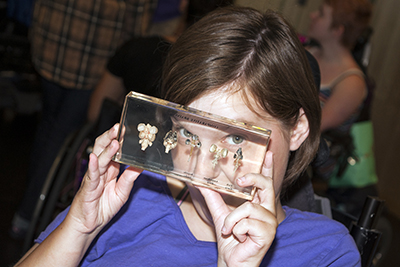Neuroscience for Neurodiverse Learners

The DO-IT Center has received funding from the National Science Foundation (NSF) for a new 4-year, $1.5M project called Developing and Testing Innovations: Neuroscience for Neurodiverse Learners. The project, in partnership with the UW Center for Neurotechnology (CNT), will provide hands-on experiences in neuroscience disciplines, networking opportunities, and resources to high school and early postsecondary students identified as “neurodiverse” learners—those with academic challenges related to conditions such as dyspraxia, dyslexia, attention deficit hyperactivity disorder, dyscalculia, autism spectrum disorder, and Tourette syndrome—and disseminate findings to teachers of courses that are related to neuroscience and, more broadly, science, technology, engineering, and mathematics (STEM).
The goal of the project is to enhance student interest in and skills to successfully pursue STEM fields, as well as empower educators to serve these students more effectively. Eric Chudler, the project’s education director, said “Diversity of thought in engineering courses and projects is really important. I’m excited to meet new students and introduce them to the field of neuroscience.” Students will be learning about the structure and function of the nervous system and brain, as they engage in hands-on activities and interact with mentors. DO-IT has partnered with the CNT for many years, engaging students in CNT education programs (centerforneurotech.org/education).